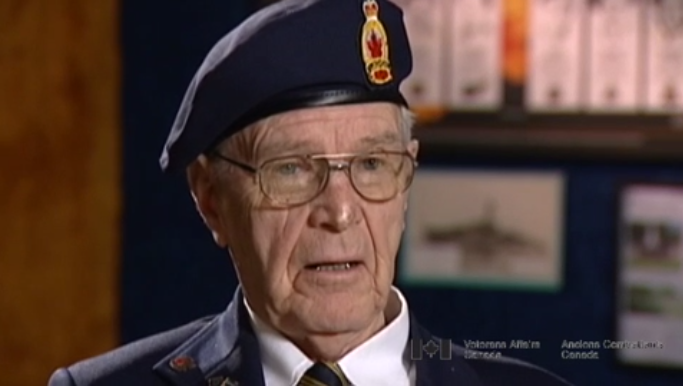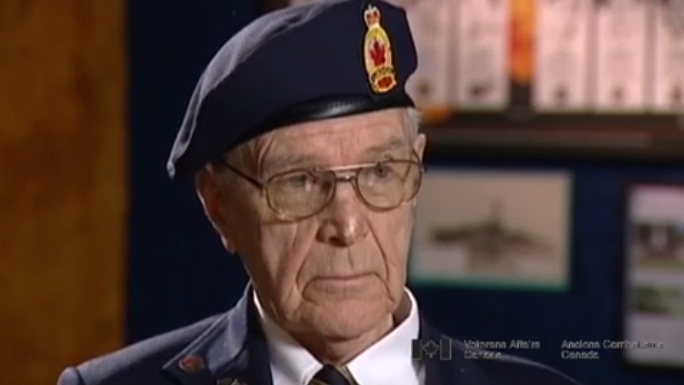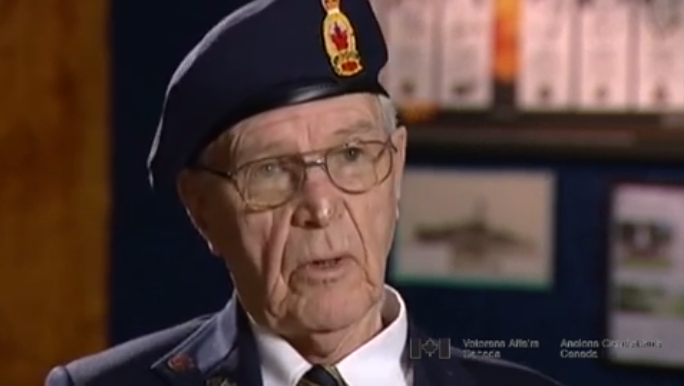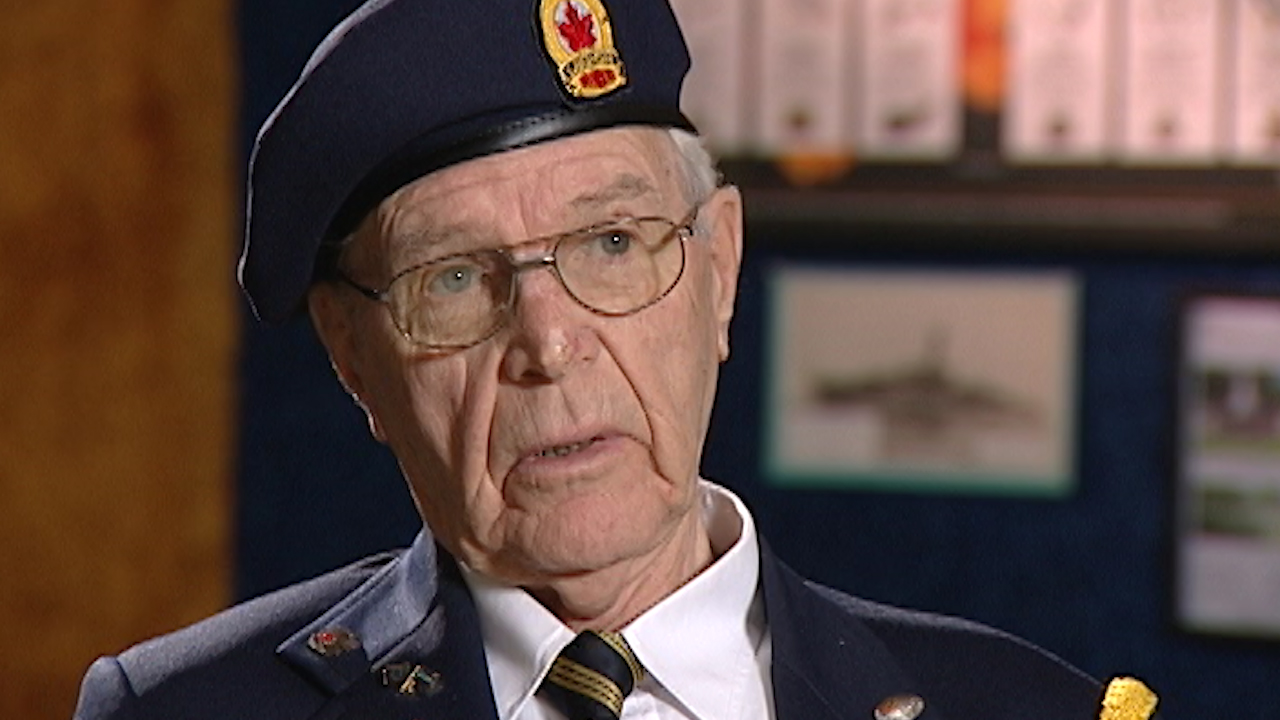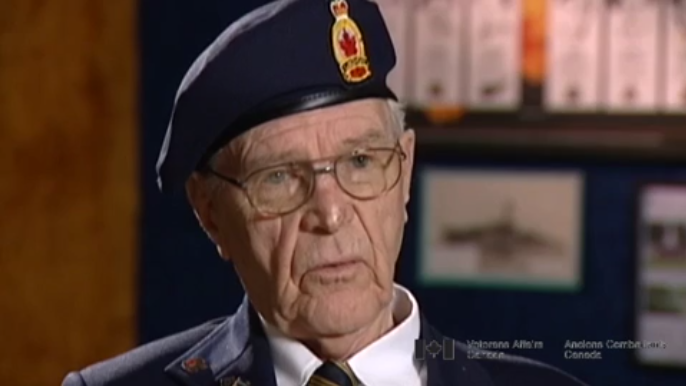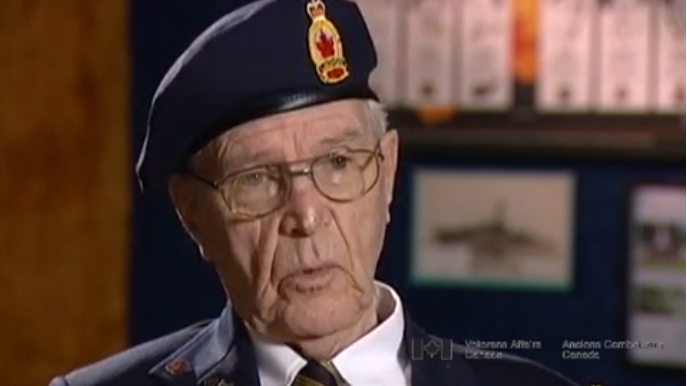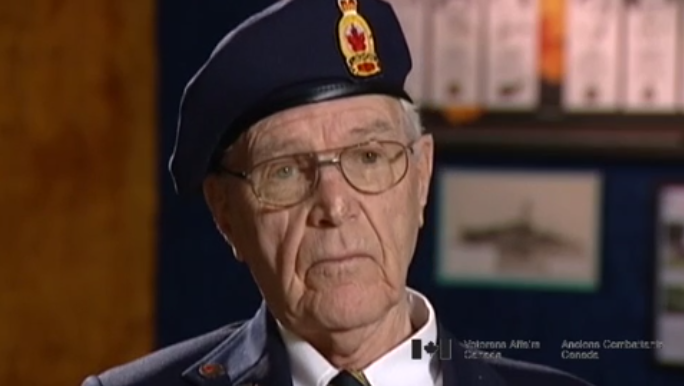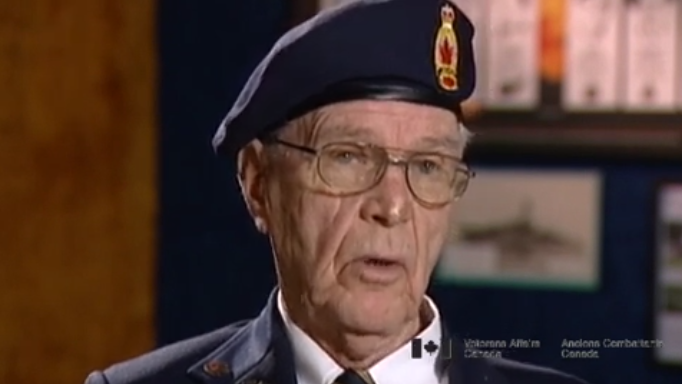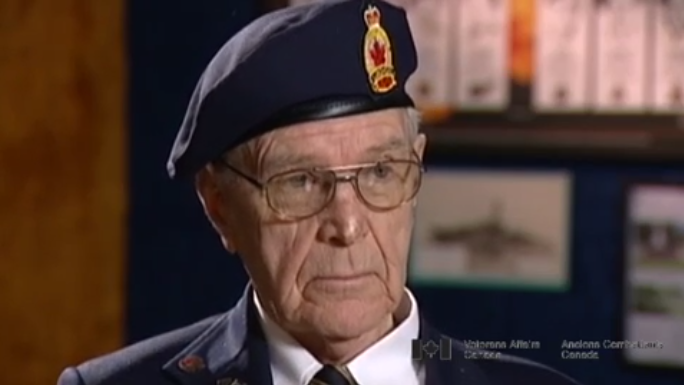They went about their daily work
Heroes Remember
They went about their daily work
Transcript
Description
Mr. Hall describes his arrival in England and the immediate impact of the Battle of Britain.
John Hall
Mr. Hall was born in Whitewood, Saskatchewan, in 1921. He worked on the family's farm until he enlisted in the Royal Regina Rifles. He was shipped overseas on a converted sugar freighter. Once in England, Mr. Hall experienced the Battle of Britain from the perspective of the local citizenry. He spent more land duty in a mail sorting depot until his Regiment joined the D-Day invasion at Juno Beach. He was a radio operator. Mr. Hall took part in numerous actions, most notably Caen, Calais and the Leopold Canal and the Liberation of Holland. After leaving the Army, Mr. Hall worked in the Canadian North with the Department of Natural Resources.
Meta Data
- Medium:
- Video
- Owner:
- Veterans Affairs Canada
- Duration:
- 2:13
- Person Interviewed:
- John Hall
- War, Conflict or Mission:
- Second World War
- Location/Theatre:
- Europe
- Battle/Campaign:
- Normandy
- Branch:
- Army
- Units/Ship:
- 436 Squadron
- Rank:
- Corporal
- Occupation:
- Signalman
Related Videos
- Date modified:



